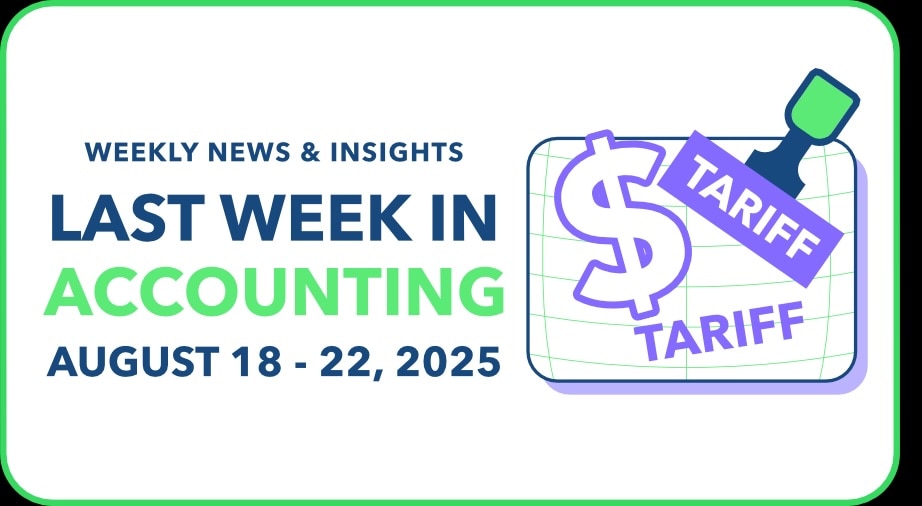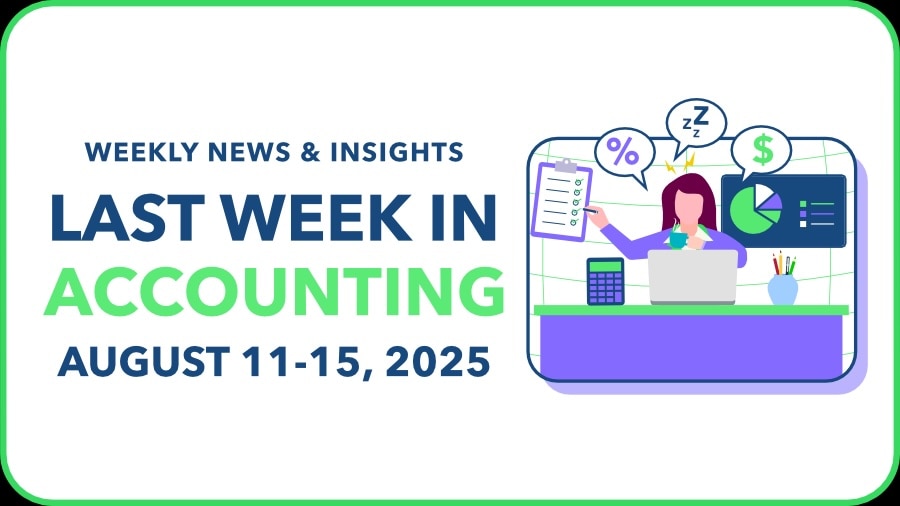🔍 Top headlines
Firms prepare widespread fee increases for 2026
The 2025 US Accounting and Tax Pricing Benchmark from Ignition reveals a profession ready to reset its pricing strategies. Four out of five firms plan to raise fees in 2026, with most targeting 5–10% increases. Rising costs remain the top driver, cited by nearly half of respondents, but the survey also points to a shift in mindset. Thirty percent of firms report no hesitation about raising fees, while 65% feel confident in their pricing approach, suggesting more accountants are framing fees around value rather than cost alone.
The report highlights benchmarks across tax preparation, advisory, bookkeeping, and CFO services, while also exploring the behavioral side of pricing, such as what drives confidence and how clients typically respond. For firms, the findings reinforce that pricing isn’t just about profitability; it’s also a lever for controlling workload, shedding low-value clients, and building more sustainable practices.
UK retailer WH Smith shares plunge after accounting error
London-listed WH Smith saw its shares tumble 42% last week after admitting it overstated North American profits due to supplier income being logged too early. The error cut its regional profit forecast by more than half, from 55 million pounds to about 25 million pounds, and prompted the company to commission an independent review by Deloitte. Analysts called the misstep a “huge embarrassment” for a business banking its future growth on its US operations.
For accountants, the story underscores how costly misjudgments in revenue recognition can be. Supplier income—often tied to promotions or brand-funded deals—can be complex, and even small misclassifications have outsized impacts on investor confidence, reputation, and valuation. The incident is a reminder for firms advising clients, particularly those expanding internationally, that robust internal controls and precise accounting policies are non-negotiable. In an era of heightened scrutiny, accurate recognition of revenue streams is as much about safeguarding credibility as it is about compliance.
Tariffs test the limits of retail accounting methods
As new US tariffs take hold, the way retailers account for inventory is shaping how their profitability appears on paper. Nearly a quarter of major retailers, including Walmart, Target, and Home Depot, use the retail inventory method (RIM), which averages costs across categories rather than tracking each item’s actual cost. When tariffs drive sudden cost increases, RIM can make margins look temporarily stronger than they are, only to compress in later quarters once costs fully cycle through. PwC estimates it often takes two to four quarters for results to stabilize, creating a disconnect between operational reality and reported performance.
This lag means that companies relying on RIM can appear more profitable in the short term, but the adjustment later can feel like a sudden hit. For firms reviewing financials—or advising clients in sectors exposed to trade volatility—it’s a reminder that reported margins may not always tell the full story until accounting methods catch up with underlying economics.
PwC to cut back entry-level hiring by one-third
PwC confirmed last week that it is scaling back campus hiring, with internal materials suggesting entry-level recruitment will shrink by nearly one-third in the US over the next three years. According to the deck, hiring goals for junior associates are projected to fall from 3,242 in the 2025 fiscal year to about 2,197 in 2028. The firm cited technological change and low attrition rates as drivers of the shift, as automation increasingly takes over tasks once performed by new hires.
The move reflects a deeper recalibration of talent pipelines at the Big Four. PwC’s AI leaders have said that incoming associates will step into responsibilities that resemble today’s manager roles, as routine work is offloaded to technology. While that raises the bar for early-career accountants, it also signals a profession where foundational training may look very different than in decades past.



